Past Retreats: 2013 Speaker Profiles
Keynote Address
Shirley Tilghman, Ph.D.
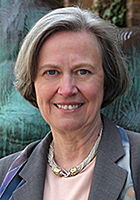
Dr. Shirley M. Tilghman was elected Princeton University's 19th president on May 5, 2001, and assumed office on June 15, 2001. An exceptional teacher and a world-renowned scholar and leader in the field of molecular biology, she served on the Princeton faculty for 15 years before being named president.
A native of Canada, Dr. Tilghman received her Honors B.Sc. in chemistry from Queen's University in Kingston, Ontario, and her Ph.D. in biochemistry from Temple University. During her scientific career as a mammalian developmental geneticist, she studied the way in which genes are organized in the genome and regulated during early development. A member of the National Research Council's committee that set the blueprint for the United States effort in the Human Genome Project, she also was one of the founding members of the National Advisory Council of the Human Genome Project for the National Institutes of Health. Dr. Tilghman was appointed an investigator of the Howard Hughes Medical Institute in 1988, and in 1998 was named the founding director of Princeton's multidisciplinary Lewis-Sigler Institute for Integrative Genomics. She is the recipient of a Lifetime Achievement Award from the Society for Developmental Biology, the Genetics Society of America Medal, and the L'Oreal-UNESCO Award for Women in Science. She is a member of the American Philosophical Society, The National Academy of Sciences, the Institute of Medicine, and The Royal Society of London. She serves as a trustee of the Carnegie Endowment for International Peace and the King Abdullah University of Science and Technology, and as a director of Google Inc.
Science, the Arts & the World
John Bohannon, Ph.D.

Dr. John Bohannon is a contributing correspondent for Science magazine. He completed a Ph.D. (2002) in molecular biology from the University of Oxford, studied bioethics in Berlin as a Fulbright scholar (2004 - 2005), and was a visiting scholar in the Program in Ethics and Health at Harvard University (2008 - 2010). His reporting from the Gaza Strip ("Running Out of Water—and Time," Science 25 August 2006) won the Reuters-IUCN Media Award for Excellence in Environmental Reporting from Europe. He is coauthor with Isabella Rosselini of "Green Porno" (winner of 4 Webby awards) and "Animals Distract Me" (official selection, 2011 Sundance Film Festival). His study of people's inability to distinguish pet food from paté caused Stephen Colbert to eat cat food on television.
NICHD Scientific Updates
Forbes D. (Denny) Porter, M.D., Ph.D.
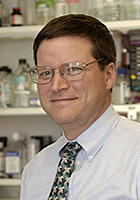
Dr. Forbes D. Porter received his M.D. and Ph.D. degrees from Washington University in St. Louis and subsequently trained in Pediatrics and Genetics at St. Louis Children's Hospital. He is board certified in Pediatrics and Clinical Genetics. Dr. Porter came to the NIH in 1993 as a postdoctoral fellow in Dr. Heiner Westphal's laboratory and subsequently formed his own research laboratory in the Heritable Disorders Branch of NICHD. Dr. Porter's research at the NIH has been focused on understanding pathophysiological processes underlying human genetic disorders in order to develop and test therapeutic interventions. He currently serves as Clinical Director, NICHD, and as Program Head for the Program in Developmental Endocrinology and Genetics (PDEGEN) in NICHD.
Todd Macfarlan, Ph.D.
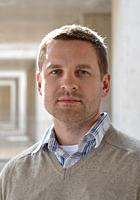
Dr. Todd Macfarlan earned his Ph.D. in Cell and Molecular Biology from the University of Pennsylvania in 2000, where his interest in epigenetic phenomena began while studying the histone binding and transcriptional repressive activities of THAP domain proteins. After his Ph.D., Dr. Macfarlan joined the laboratory of Dr. Samuel Pfaff at the Salk Institute for Biological Studies, where he continued to study epigenome changes during mammalian embryo development. Dr. Macfarlan was then recruited to the NIH in July of 2012 as part of the Earl Stadtman Investigator search in chromosome biology and epigenetics. As a member of the Program in Genomics of Differentiation, he heads the Unit on Mammalian Epigenome Reprogramming.
Career Focus: Round Tables
Aarthi Ashok, Ph.D.
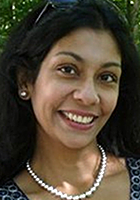
Dr. Aarthi Ashok did her undergraduate degree in Biochemistry & Genetics at Sheffield University in Sheffield, UK, followed by a Ph.D. studying polyomavirus entry into host cells at Brown University in Providence, RI. In 2005, she joined Dr. Ramanujan Hegde's lab at the NICHD studying the intracellular trafficking of disease-causing mutants of the prion protein. In 2009, she came to The University of Toronto- Scarborough (UTSC) in Canada as a Lecturer in the Department of Biological Sciences.
Dr. Ashok develops and teaches undergraduate courses from second to fourth year and is involved in shaping the undergraduate curriculum. She engages actively with many undergraduate educators in Toronto to build a network of professionals interested in improving the undergraduate learning experience in Biology and to devise pedagogical strategies that complement the increasing enrollment in many biology programs across Ontario and Canada. In addition, in her role as the coordinator of biological research courses, Dr. Ashok mentors undergraduates in year-long research-based thesis projects, to aid their development as budding scientists.
Mark Bayfield, Ph.D.
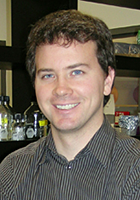
Dr. Bayfield did his undergraduate degree at McGill University in Montreal, Canada, followed by his Ph.D. studying peptide bond formation in Dr. Albert Dahlberg's lab at Brown University in Providence, RI. In 2004, he joined Dr. Rich Maraia's lab at the NICHD studying RNA processing by the La antigen. In 2009, he came to York University in Toronto, Canada as an Assistant Professor, where he has been studying La and La-related proteins ever since. The work of his lab is funded by the Natural Science and Engineering Research Council of Canada and (very recently!) by the Canadian Institutes of Health Research.
Cheryl Bolinger, Ph.D.

Dr. Cheryl Bolinger is an RNA Gene Designer in the Molecular Engineering Unit of Intrexon Corporation, located in Germantown, MD. For the past year, she has been designing synthetic DNA and RNA sequences to control the timing and level of gene expression. Dr. Bolinger is a former NICHD postdoctoral fellow from Dr. Tom Dever's lab, where she studied gene expression in S. cerevisiae. While at NIH, she participated in several activities away from the bench, including serving on the FARE award committee, the Science Policy Interest group, and other internal NICHD fellows committees. She also spent four months doing a part-time detail in the NICHD office of science policy. Dr. Bolinger received her Ph.D. from The Ohio State University in Molecular, Cellular, and Developmental Biology, where she studied translation control in retroviruses.
Andrea McCollum, Ph.D.

Dr. Andrea McCollum recently transitioned to a position at the United States Patent and Trademark Office (USPTO), where she works as a Patent Examiner in the biological sciences. She graduated with a B.S. in Chemistry from Lyon College and a Ph.D. in Molecular Pharmacology and Experimental Therapeutics from the Mayo Clinic College of Medicine. A former NIH-er, she was recruited to NCI as a 2007 Sallie Rosen Kaplan Fellow, where her postdoctoral work investigated the role of molecular chaperone proteins as novel prognostic biomarkers and molecular targets for ovarian cancer therapeutics. Her research was supported by the Pharmacology Research Training Associate (PRAT) Fellowship from NIGMS and a Kaleidoscope of Hope Ovarian Cancer Foundation Young Investigator Grant. Prior to joining the USPTO, Dr. McCollum worked in the Office of Program Integrity Coordination under the Assistant Secretary for Financial Resources at the Department of Health and Human Services.
Margaret Ochocinska, Ph.D.
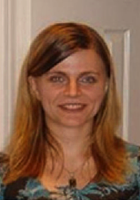
Dr. Margaret Ochocinska is a Health Program Specialist in the Office of Translational Research, at the National Institute of Neurological Disorders and Stroke (NINDS), supporting both the Countermeasures Against Chemical Threats (CounterACT) Program and the Anticonvulsant Screening Program (ASP). Dr. Ochocinska received her Ph.D. in Neuroscience, B.S. in Biology and M.S. in Neuroscience from the University of Michigan, Ann Arbor. Dr. Ochocinska completed her doctoral training with Dr. Peter F. Hitchcock at the University of Michigan Kellogg Eye Center and her postdoctoral training with Dr. David C. Klein in the intramural program at the Eunice Kennedy Shriver National Institute of Child Health and Human Development (NICHD), where she worked on identifying mediators of photoreceptor degeneration.
Carolyn Peluso, Ph.D.
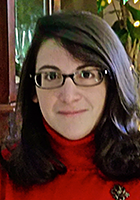
Dr. Carolyn Peluso is a Technical Writer and Cell Biology Specialist at the American Type Culture Collection (ATCC). She earned her Ph.D. from Tufts University and did her postdoctoral training in NICHD in the laboratory of Dr. Mihaela Serpe.
In her academic career, she has sought to answer questions related to how cellular patterning occurs. As a graduate student her research focused on understanding how olfactory sensory neurons are patterned across the epithelial plane of the mammalian olfactory epithelium. As a postdoctoral fellow, her work explored how the processing of a BMP-binding protein helps to create a step-gradient of BMP, which is required for the proper dorsal-ventral patterning of the Drosophila embryo.
Currently, Dr. Peluso is a Technical Writer in the Marketing Department at ATCC. Here, her responsibilities include managing the marketing team's editorial calendar and preparing materials, such as application notes, to support the products in the collection. In addition, she helps support the company's position as a thought-leader in the scientific community by writing editorial articles for relevant trade publications. Dr. Peluso recently co-authored a piece on biobanking for Genetic Engineering and Biotechnology News and a piece on the need for cell authentication for Drug Discovery News.
Joaquin Villar, Ph.D.
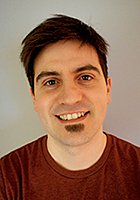
Dr. Joaquin Villar received his Ph.D. from a local university in his hometown of Pamplona, Spain. In 2004, he moved to the Washington, DC area and joined Georgetown University's Lombardi Cancer Center to study the androgen receptor pathway in prostate cancer. In 2008, Dr. Villar joined NICHD where he studied the role that androgens play in the process of spermatogenesis.
Since September 2012, Dr. Villar works at GeneDx-BioReliance in Gaithersburg, MD as a Senior Scientist-II Molecular Review Analyst. GeneDx specializes in genetic testing for rare hereditary disorders. He performs the final technical review of sequencing (Sanger, Next Generation, and Exome) and other molecular data to provide clinical interpretation of genetic variants.
Fellow Speakers
Kimberly Decker, Ph.D.
Dr. Decker graduated from the University of North Carolina, then completed her Ph.D. at the NIH through the Graduate Partnership Program with Johns Hopkins University. Her research focused on the complex mechanisms of virulence gene regulation in the pathogenic bacteria Bordetella pertussis, the cause of the re-emerging disease known as whooping cough. As a postdoctoral fellow in the laboratory of Dr. Matthias Machner, NICHD, she is studying the interactions between the intracellular pathogen Legionella pneumophila and its host, the human macrophage.
Amanda Dettmer, Ph.D.
Dr. Dettmer completed her B.S. in zoology at the University of Washington, Seattle, where she conducted research in the Infant Primate Research Laboratory. She then earned her M.S. and Ph.D. in Neuroscience & Behavior at the University of Massachusetts, Amherst, under the mentorship of Dr. Melinda Novak. Her study of macaques focused on stress physiology. As a postdoctoral fellow in Dr. Stephen Suomi's Laboratory of Comparative Ethology in NICHD she is studying predictors of infant survival and development in rhesus monkeys.
Krishna Melnattur, Ph.D.
Dr. Melnattur received an undergraduate degree in Biotechnology from Anna University in Madras, India, then completed a doctorate at the University of Massachusetts, Amherst, using the molecular genetic tools in Drosophila to explore the roles of olfactory local neurons in olfactory circuit assembly. He is conducting his postdoctoral research in the laboratory of Dr. Chi-Hon Lee, NICHD, looking at how chromatic information is represented in the brain.
Megan Wyeth, Ph.D.
Dr. Wyeth is a postdoctoral fellow in the laboratory of Dr. Chris McBain, in the Program in Developmental Neurosciences of NICHD, where she studies interneuron circuitry in a developmental context, with an emphasis on their driving glutamatergic inputs rather than their GABAergic outputs. She completed her undergraduate degree at the University of Washington, doing research with Dr. Bruce Ransom, and her graduate work with Dr. Carolyn Houser at the University of California, Los Angeles, where she studied changes in inhibitory circuitry underlying temporal lobe epilepsy.